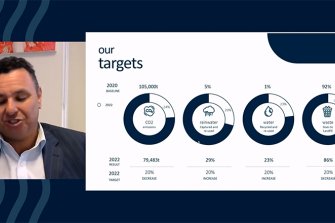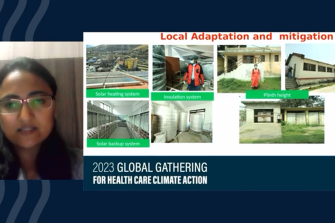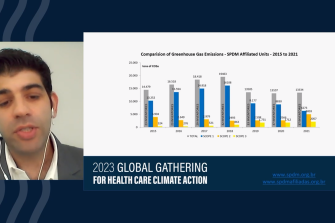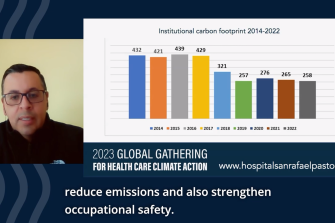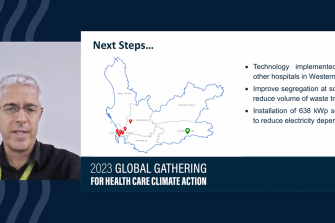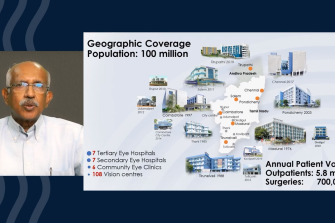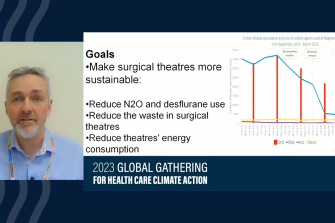
Together with our partners around the world, Health Care Without Harm convened representatives from 98 health care organizations spanning 20 countries to share their learnings from implementing decarbonization and climate resilience initiatives. The Health Care Climate Learning Initiative began with a series of workshops in 2023 that brought together health care leaders to discuss proven practices, share challenges, and collaborate on climate goals and strategies. Read the story behind this global initiative.
Guidance for health care climate action
The proven practices shared by health care organizations around the world as part of the Health Care Climate Learning Initiative were used to develop step-by-step guidance for sustainable, climate-smart care.
Case studies
Health Care Without Harm and its partners convened health care organizations from 17 countries around the world to share 38 case studies, featuring videos, photos, and graphics that illustrate their challenges, victories, and lessons learned as each found their path to achieve net zero. Explore the case studies below.
Learning objectives
- Gathering support and resource allocation from leadership, and an expressed commitment to climate action. Browse the case studies.
- Baselining and estimating emissions and risks, strategies, and action plans. Browse the case studies.
- Developing a carbon or climate management plan to improve facility- and community-based climate adaptation and resilience. Browse the case studies.
- High-impact interventions to reduce emissions and build resilience and adaptive capacity. Browse the case studies.
Case study videos
Initiative objectives
- Foster bi-directional and multi-directional learning among Race to Zero health care participants – a cohort of hospitals and health systems defining the leading edge of health care decarbonization by committing to net-zero emissions.
- Identify a set of lessons learned that can inform the health care sector as it seeks to align with the ambitions of the Paris Agreement.
- Identify interconnections and model approaches linking health care decarbonization, community resilience, and health equity.
- Identify strategies that strengthen the established global network and bolster our ability to support Race to Zero’s health care members around the world as they decarbonize and build resilient health systems.
- Support the acceleration, broadening, and deepening of health care’s trajectory to zero emissions, climate resilience, and health equity.
Participating health care organizations submitted case studies demonstrating progress in one or more of the following areas.
Support for this project was provided by a grant from the Robert Wood Johnson Foundation’s Global Ideas for U.S. Solutions team. The views expressed here do not necessarily reflect the views of the Robert Wood Johnson Foundation.
